“Compelling…the ensemble gives lovely performances.” –Broadway World
“Offers plenty to consider about survival, fear, and love.” –Chicago Reader
“A play to remember…stellar ensemble and a deeply moving script.” –Picture This Post
“Will undoubtedly go on to become a popular title.” –Chicago Theatre Review
Synopsis
Each Passover, for four millennia, we ask: why is this night different from all other nights? And each year, the Levi-Katz clan has answered, while struggling with questions of race and religion that never seem to get resolved. The family finds strength in tradition (vegan brisket or no); but each year of celebration brings more pressing questions about the future: if trauma is generational, then must we be defined by it? Will we ever be free? Written by Ali Viterbi, In Every Generation was the 2019 winner of the National Jewish Playwriting Contest, and will have its world premiere at Victory Gardens, staged by Devon de Mayo (If I Forget, Victory Gardens).
In Every Generation is produced at Victory Gardens Theater as part of a National New Play Network Rolling World Premiere. Other Partner Theaters are Olney Theatre Center (MD) and San Diego Repertory Theatre (CA). For more information, please visit nnpn.org
To protect the health of all who visit the Biograph Theater, the following attendance policies are in place for the 2021/22 Season, which follow state and local guidelines for safe operation during the COVID-19 pandemic.
-All audience members must be masked for the duration of their visit. Masks are available onsite if needed.
-All audience members ages 5-15 must show proof of full COVID-19 vaccination to be admitted to the theater.
-All audience members ages 16 and up must show proof of full COVID-19 vaccination, along with a matching, valid photo ID to be admitted to the theater.
-Audience members who have a medical or religious vaccine exemption (e.g. from an employer) must contact the Box Office at tickets@victorygardens.org with this documentation at least 24 hours in advance of their performance to be admitted. In addition, a negative COVID-19 PCR test result from within the last 72 hours and a matching photo ID must be shown at the door prior to entry.
-Those without this documentation will be rescheduled into another performance.
And remember…there is an inherent risk of exposure to COVID-19 at any public gathering. Those visiting Victory Gardens Theater voluntarily assume all risks related to exposure to COVID-19.
[lgc_column grid=”50″ tablet_grid=”50″ mobile_grid=”100″ last=”false”]
Seating Details for In Every Generation
For this production, the Začek-McVay Theater has been transformed into a unique in-the-round set-up with on-stage seating.
Rows A, B, and C are on the stage, which has been extended into the audience. Row D is the front row in the audience, while Rows E-K remain in their original location. Please note that Rows A-C are not accessible for those with mobility devices due to stairs, and those using Assisted Listening Devices (ALDs) should select seats in rows D-K.[/lgc_column]
[lgc_column grid=”50″ tablet_grid=”50″ mobile_grid=”100″ last=”true”]
[/lgc_column]
Cast and Creative Team
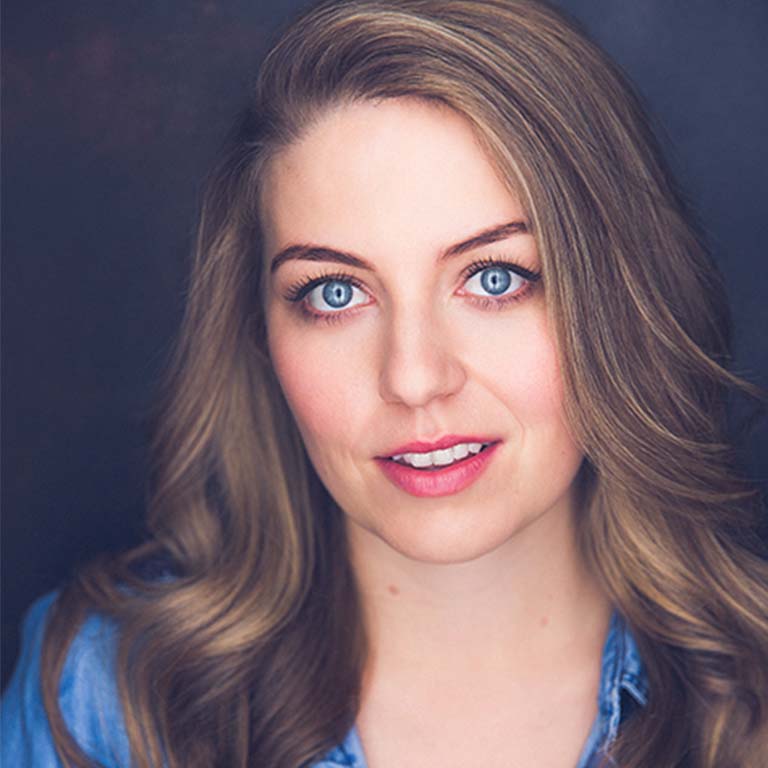
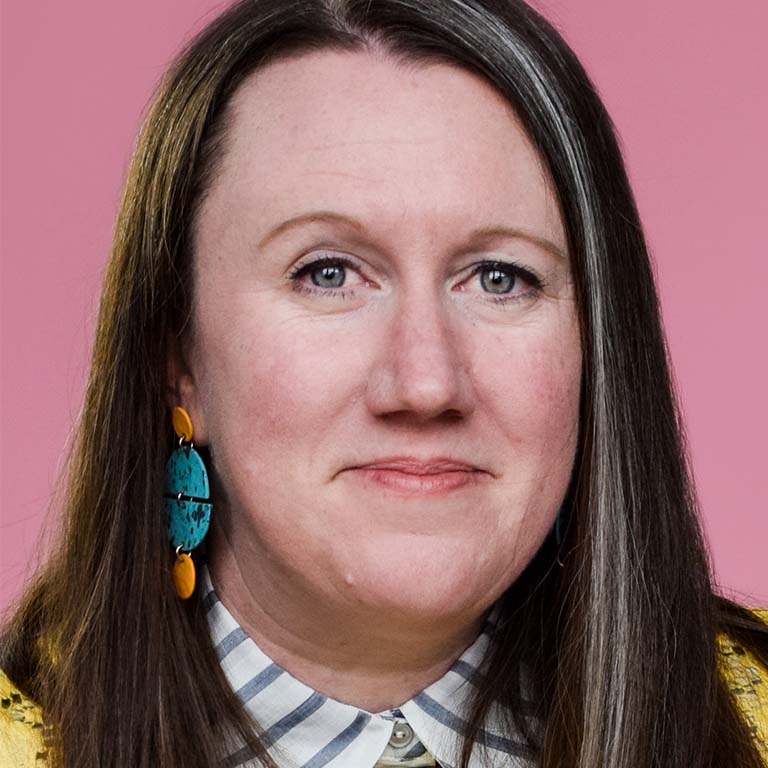
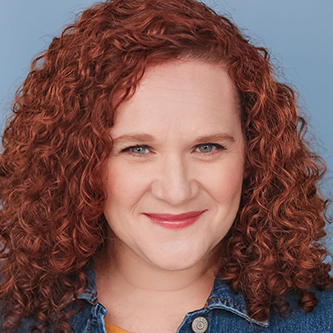
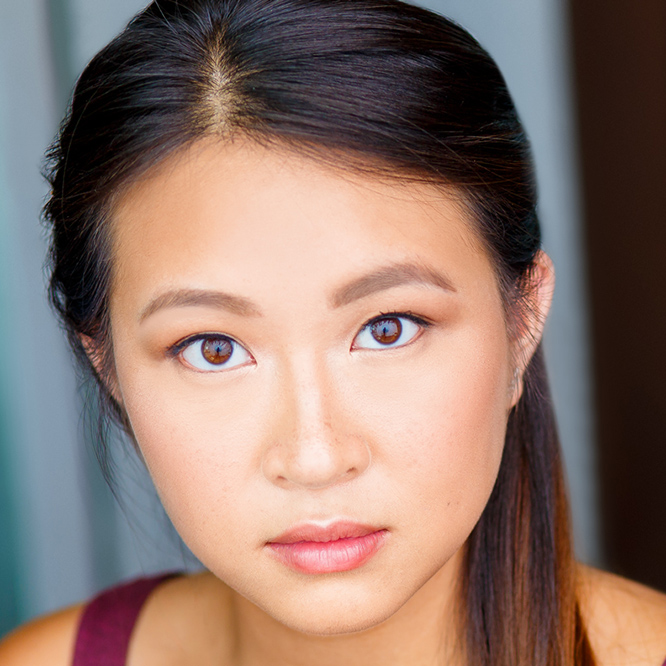

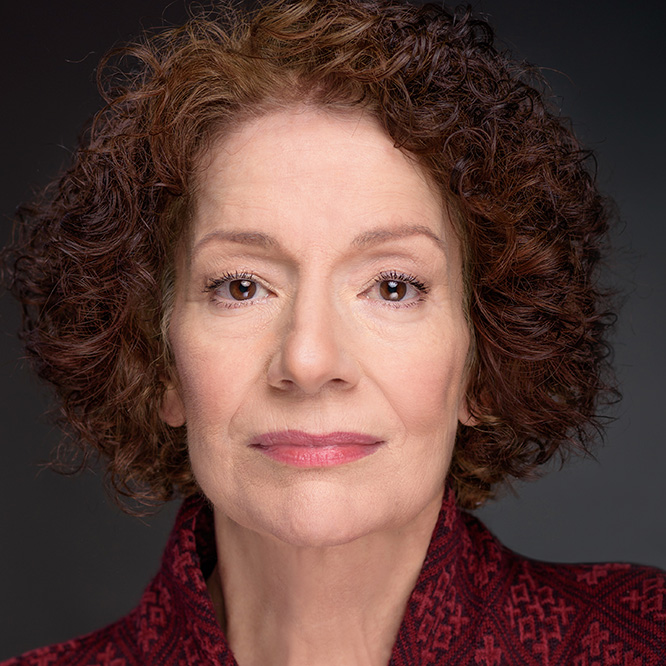

Design and Production Team
Understudies


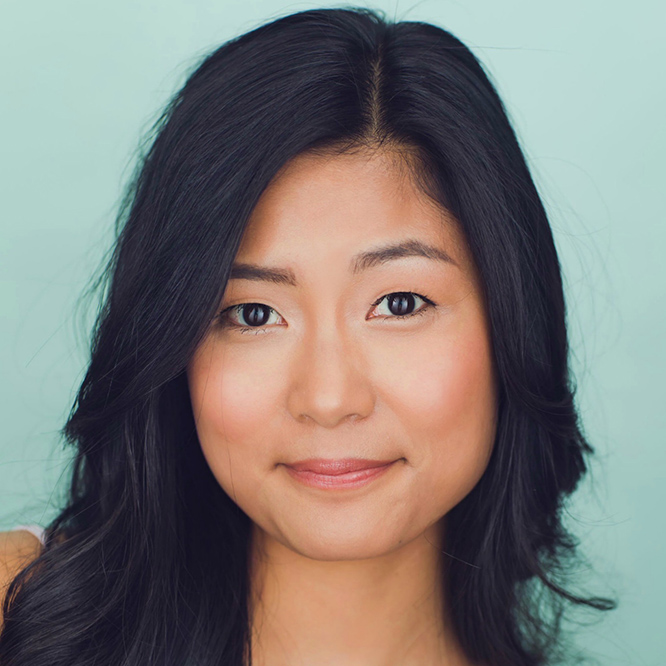


Gallery
Photo credit: Liz Lauren
Below is a summary of the events of In Every Generation, for those who wish to know the plot before seeing the show. WARNING: Spoilers below!
_________
Part One: April 2019. The Levi-Katz family–grandparents Paola and Davide, their daughter Valeria, and her daughters Dev and Yael–gathers for the Passover Seder. This year feels different than most. Davide is in the late stages of ALS; he is wheelchair-bound and has lost the ability to speak, and his loved ones are aware that this will likely be his last Seder with them. His daughter, Valeria, has cooked a Seder feast for the sake of her sick father; but her recent divorce from a rabbi has left her feeling distanced from Judaism, and she would prefer to make it through the evening as quickly as possible. Yael, in her first year at Yale, is excited by activism and by the field of epigenetics. She plans to spend the summer working in a lab in New Haven, studying her own DNA to see whether trauma–like surviving the Holocaust–can manifest in the genes of future generations. Dev, who was adopted from China, feels her connection to the family differently from her sister; she finds her calling in the Jewish traditions that have been passed down from generation to generation. While she’s been living at home, helping take care of her grandfather, she secretly applied to rabbinical school. Paola is thrilled by the idea of having a doctor and a rabbi for grandchildren; but she worries that her stories of living through the Holocaust aren’t taken seriously by her descendants. Jews in America are only safe and free for now, she argues, pointing to centuries-long cycles of violence and the current rise of anti-Semitism. The family discusses the intersection of oppression and privilege they experience as American Jews, and what that means for their identities. As the evening unfolds, secrets are revealed and bubbling tensions come to a head.
Part Two: April 1954. Davide and Paola, newlyweds in their early twenties, are celebrating their first Seder as immigrants to America. They’re still learning English and trying to establish a community–as well as dealing with the trauma of losing their homes and everyone they loved. Paola reveals to Davide that she doesn’t remember any of the Seder prayers. Davide promises to teach her, and the two of them dream of the family they’ll have. Paola worries that she won’t be able to have any more children after a miscarriage in the DP camp where they met; but when she decides that she’s ready to try again, Davide declares Passover his new favorite “sexy holiday.” When Paola insists that their children will need to know where they come from, Davide reluctantly reveals some of the horrors he experienced as a prisoner in Auschwitz, and the guilt of the terrible choices he had to make in order to survive. Paola reassures him that she loves him no matter what, and decides that they’ll find a gentler story to tell their children. She tells him that his survival was a miracle of his own making, and they dance to the tune of Dayeinu.
Part Three: April 2050. After years of estrangement, Dev and Yael gather to celebrate the Seder with their mother, Valeria, who is now wheelchair bound and nonverbal. Dev has become the rabbi of a large congregation in Los Angeles–but being a queer, Asian woman leading a synagogue is no easy feat, especially in the midst of waves of anti-Semitic legislation and violence. In the years leading up to this Seder, Valeria was fired from UCLA (along with Jewish professors across the country), Dev has gotten used to vandalism and death threats, and Yael’s six-year-old daughter came home from school with a black eye once her classmates learned she was Jewish. Yael, now a doctor, is focused on keeping her daughters alive and safe, even if that means withholding their heritage from them. Dev urges Yael to take responsibility for sharing Jewish identity and traditions with the next generation; but Yael bristles at being told how to raise her own children, especially when the traditions her sister loves will put her daughters in danger. As they argue, Valeria implores them to remember to take care of each other–soon, they’ll have no one else.
Part Four: April ~1416 BCE. After forty years of wandering through the Sinai Desert, Paola, Davide, Valeria, Dev, and Yael–or people who look very much like them–are close to the Promised Land. The girls, who were born after their parents and grandparents escaped the Pharaoh’s slavery in Egypt, dream of what awaits them in Canaan. They are shocked and saddened when they learn that the older generations are not permitted to enter Canaan, and that they must now leave Valeria, Paola, and Davide behind. Dev asks them to tell the story of their escape from Egypt one more time. As we hear of the ten plagues and the crossing of the Red Sea, we see the very first Passover Seder start to take place, in the form of two young girls finding a way to remember the story of their parents’ and grandparents’ suffering and survival. The play ends with the family singing Mi Chamocha, the song of celebration that the Israelites sang after escaping Egypt and crossing the Red Sea–at first all together, and finally with Dev and Yael alone, in a desert miraculously filled with cherry blossoms.
Production Sponsors
[lgc_column grid=”25″ tablet_grid=”25″ mobile_grid=”100″ last=”false”]Venturous Theater Fund, A Fund of the Tides Foundation[/lgc_column]
[lgc_column grid=”25″ tablet_grid=”25″ mobile_grid=”100″ last=”false”]Edgerton Foundation[/lgc_column]
[lgc_column grid=”25″ tablet_grid=”25″mobile_grid=”100″last=”fales”]Sylvia and Larry Margolies[/lgc_column]
[lgc_column grid=”25″ tablet_grid=”25″ mobile_grid=”100″ last=”true”]National New Play Network[/lgc_column]










